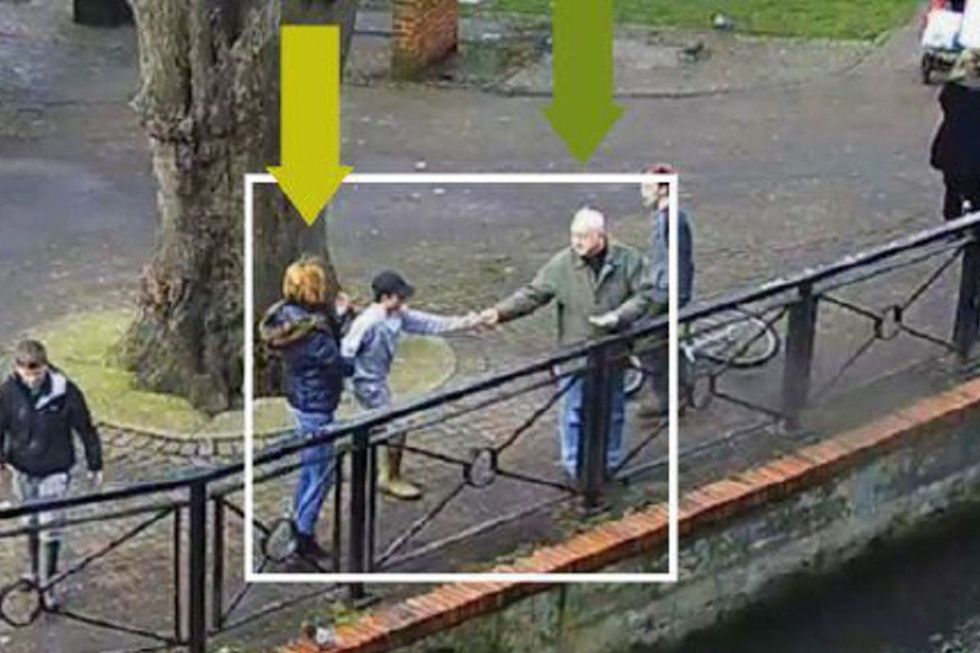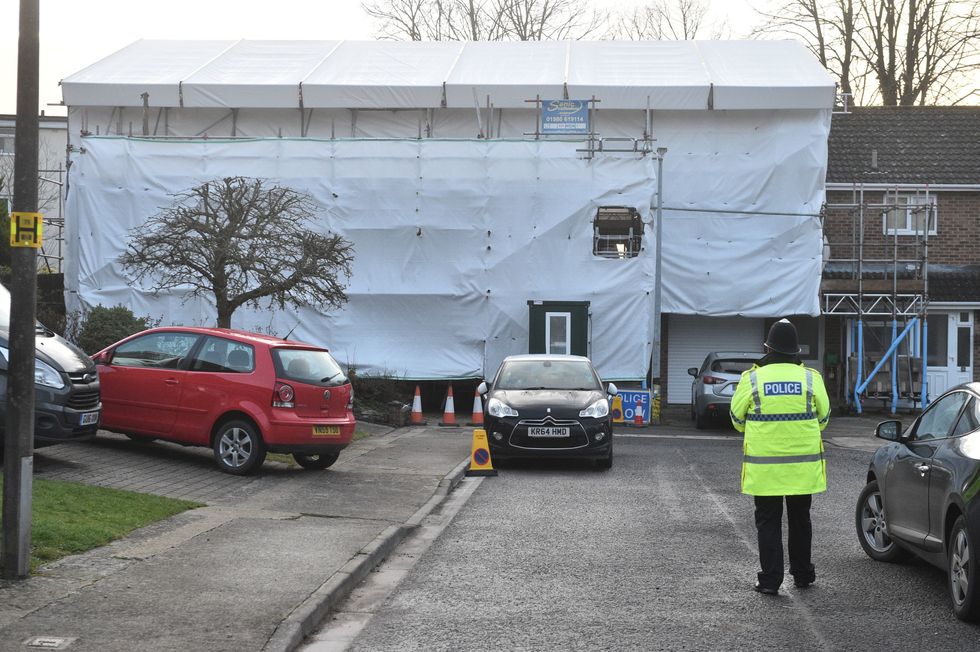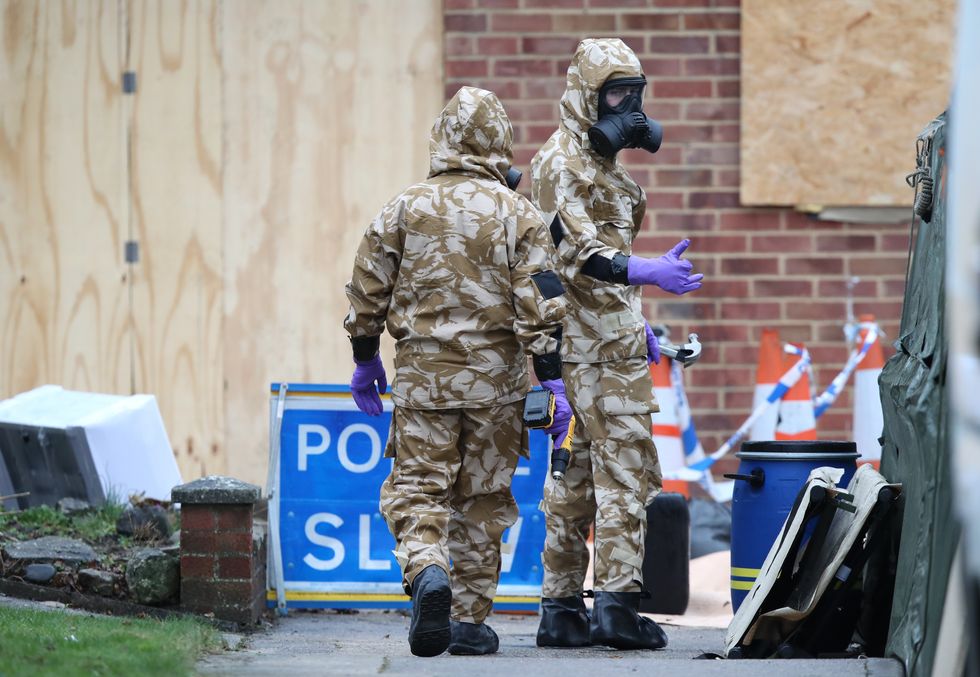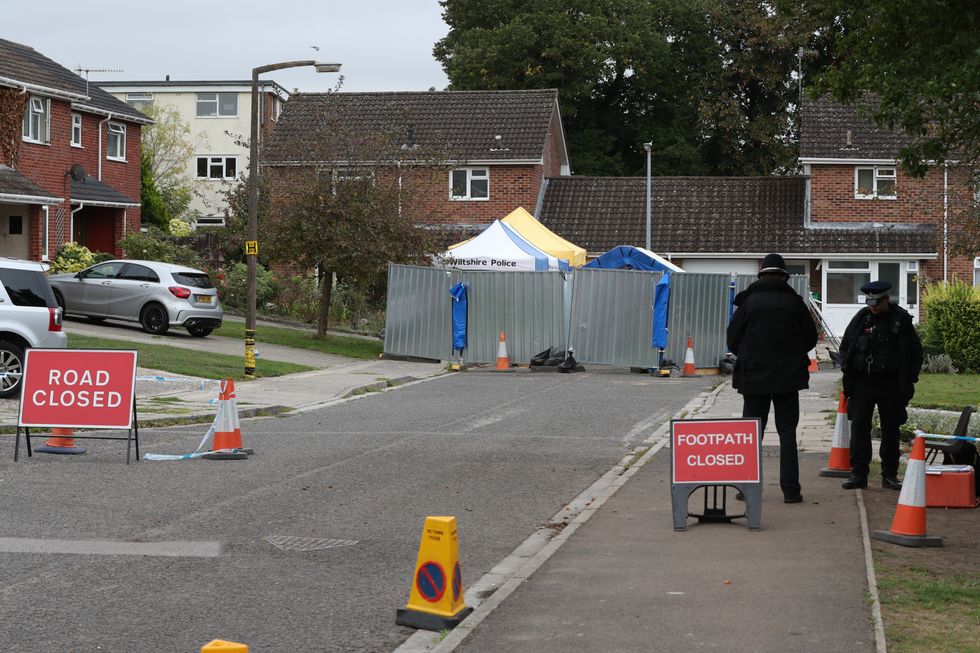A schoolboy fell ill after poisoned Russian spy Sergei Skripal handed him bread to feed ducks, new details from the Salisbury Novichok poisoning inquiry have revealed.
CCTV footage showed Skripal, who was already contaminated with the nerve agent, handing bread to a young boy near the River Avon in March 2018.
The child and two others reported feeling unwell for a day or two after the interaction.
However, when tested, all three showed no traces of the chemical weapon.
The schoolboy fell ill after taking bread from Skripal in a park
PA
A police officer stands outside the home in Salisbury of Sergei Skripal
PA
She noted the pair's well-dressed appearance, which did not fit the stereotype for drug users.
McCourt's swift action, alongside Dr Helen Ord, proved crucial in the desperate fight to save the Skripals' lives.
Dr Ord, an off-duty paediatric consultant, focused her attention on Yulia Skripal, whose condition appeared more severe.
Yulia was fitting, her airways obstructed, and she had vomited heavily, turning blue around the lips.
Dr Ord told the inquiry: "She was critically more unwell than he was."
Members of the military wear protective clothing as work continues on the home of former Russian spy Sergei Skripal in Salisbury
PA
With no specialist equipment at hand, Dr Ord performed a jaw thrust to keep Yulia's airway open.
Lord Hughes of Ombersley, chair of the inquiry, commended Dr Ord's actions, stating: "Everybody was fortunate that you did respond."
McCourt also firmly dismissed Russian conspiracy theories about her involvement in the Salisbury incident.
In a witness statement, she addressed claims made by the Russian Embassy.
"I had no prior knowledge of the individuals on the bench," she said. "I had never seen them before in my life and nor did I know who they were."
The home of former Russian spy Sergei Skripal on Christie Miller Road in Salisbury
PA
McCourt, who left the Army in 2022, added: "Given my training, had I known that a nerve agent had been used I would not have exposed myself to any potential risk of harm."
The Skripals eventually recovered after weeks of treatment, which included expert advice from the nearby Porton Down chemical warfare research facility.
They were given new identities and now live in an undisclosed country.
However, Dawn Sturgess, 44, died four months later after being exposed to the nerve agent left in a discarded perfume bottle.
The inquiry continues to examine the circumstances surrounding Sturgess' death.

 By GB News (World News) | Created at 2024-10-30 10:56:38 | Updated at 2024-10-30 19:21:28
8 hours ago
By GB News (World News) | Created at 2024-10-30 10:56:38 | Updated at 2024-10-30 19:21:28
8 hours ago







